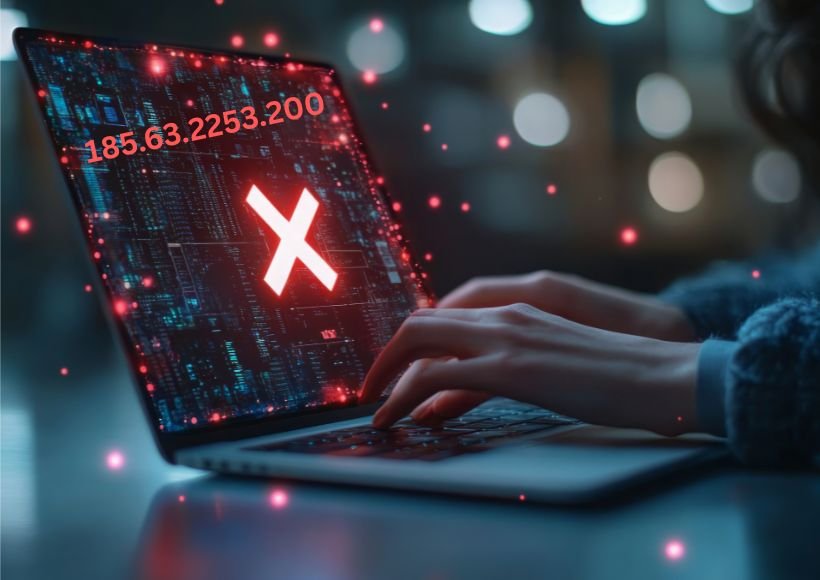185.63.2253.200 – What’s Going On With This IP Address?

An IP (Internet Protocol) address is used to identify devices on a network. An IP address is generally made up of 4 numbers separated by periods; for example, 192.168.1.1 (the segments must be between 0 to 255). IP addresses help steer internet traffic to the appropriate device.
There are two primary types of IP addresses: IPv4 and IPv6. The address 185.63.2253.200 seems to be in the format of an IPv4 address; however, it has a very serious defect.
Table of Contents
Common Uses for IP Address-Like Strings
IP addresses are used every day in settings such as:
- Logging into a router admin panel (like 192.168.0.1)
- Hosting websites and assigning server locations
- Remote access to cameras, smart home devices, and cloud systems
- Online multiplayer gaming and VPN services
Sometimes people see numeric strings that resemble an IP address and assume that they have a technical purpose. That is, not all of these strings are legitimate or are legitimate IP addresses.
Why is 185.63.2253.200 Invalid?
Let’s take a closer look: 185.63.2253.200 has the correct aesthetic—four numerals separated with periods. The problem is that the third octet (the “2253”) exceeds the allowable range, which is 0–255.
This breaks the address into a usable address. No browser, server, or device will recognize this as a valid IP. The Internet does not process addresses like this.
Is 185.63.2253.200 a Real IP?
No, 185.63.2253.200 is not real. It does not resolve to an active domain or physical machine. DNS tools and traceroute checks show errors with this string. It exists only as a false or mistaken identity of a real IP address.
People may try to use it, for curiosity or by mistake, particularly if they see it posted on the Internet.
Can Hackers Use Invalid IPs to Hack My Router?
No. Hackers can’t just use a false IP like 185.63.2253.200 to access your system directly. Your router or computer is not going to recognize or respond to something that doesn’t exist.
But the hype around the false address sometimes leads people to open links or download suspicious files that claim to “unlock” secret content. That’s actually the danger, not the IP. It is misinformation and deception.
To stay safe:
- Avoid clicking on random links related to strange IPs
- Never enter credentials on unfamiliar websites
- Use a secure router password and keep firmware updated
So Why Is Everyone Looking For? Let’s Explain The Trend
If you’re wondering What’s with 185.63.2253.200? Well, the reason is typically due to a viral piece of content. Social platforms such as TikTok, YouTube, Twitter or Reddit occasionally activate odd numbers related to some technology situation, and people become curious about what it is or sounds like, which can be confusing.
It’s so easy for someone to make a video, say “Come see what happens if you go here, when you click this IP!” and just like that, the Number is being shared around by accounts that have no basis for what they are even sharing. As the clicks and numbers start to trend in sequence on searches, there is an illusion that there must be something important or secretive about the IP scene that encourages all of this.
There’s really no meaning or technical value to 185.63.2253.200; it’s nothing more than online speculation.
Conclusion
185.63.2253.200 is invalid; it cannot connect to anything, it provides no function on a technical level, and it does not even follow basic IP formatting rules. While the increased attention this string receives on social media of unpredictable intensity may seem jarring or confusing, there is no evidence to suggest that this string can even be used for any real purpose.
If you see the string 185.63.2253.200, just remember that it is invalid, does not pose a danger in and of itself, and is probably just part of another internet trend. You will be better off sticking to known and trusted IPs when configuring networks and when browsing online.
